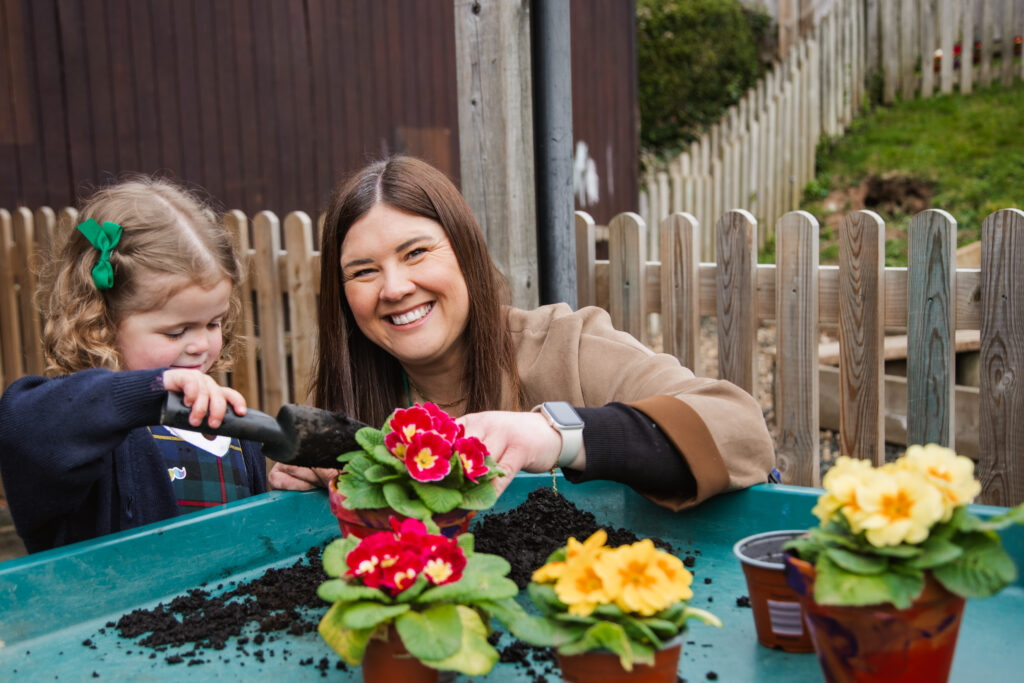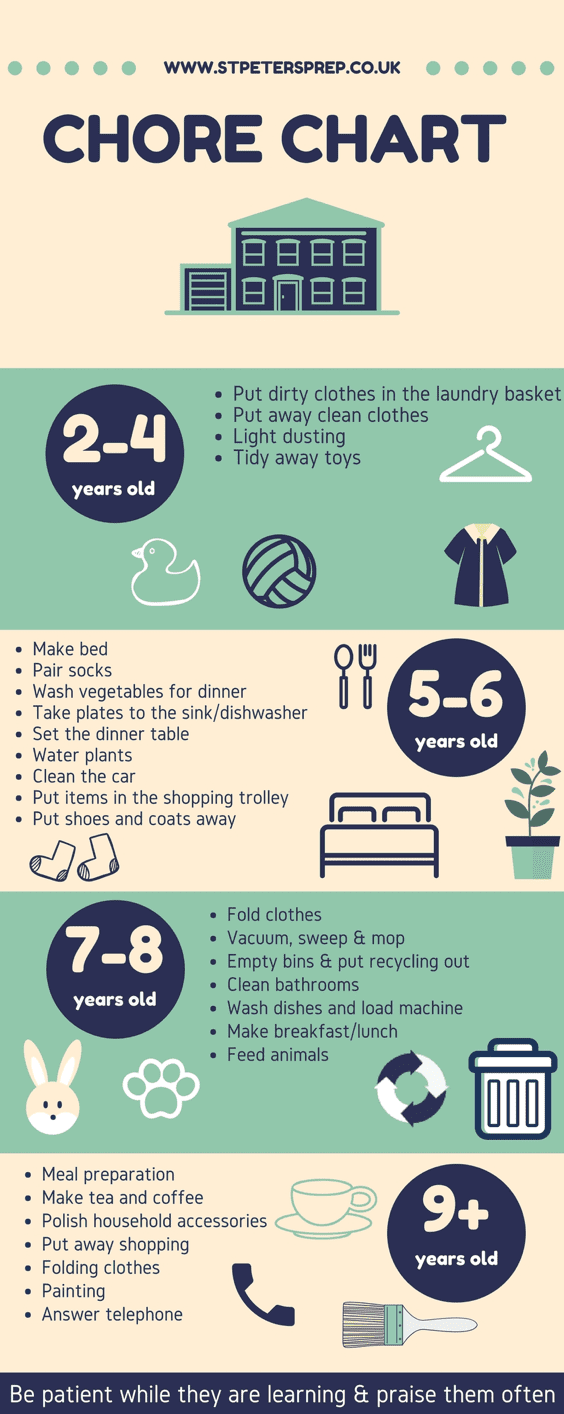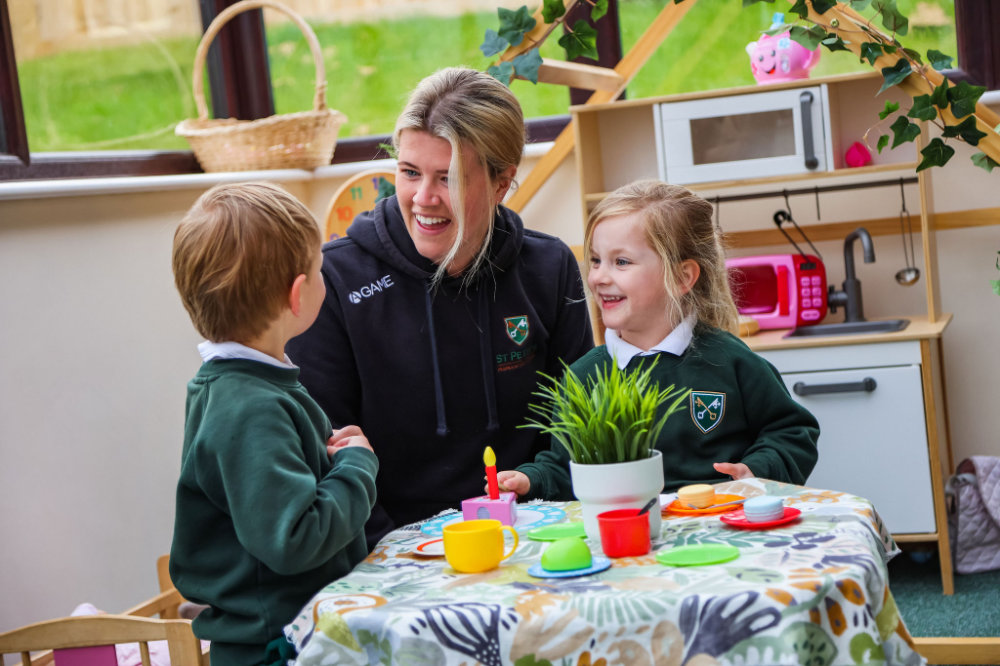Whether you love them or hate them, as an adult, chores are here to stay! The unavoidable tasks around the house, such as washing dishes and preparing meals, laundering clothes and ironing, emptying bins, dusting and hoovering, cleaning the car, mowing the lawn and weeding, can often feel like they never end. Unless you have a helping hand that comes to your home and assists you with them, these tasks are part of your everyday life.
The realisation of chores can often be a shock to children or teenagers when they aren’t expected to contribute to them growing up, which is why we think it is beneficial to introduce them at a young age. There are many benefits of children being encouraged to assist around the home, not only do you get a helping hand, but they will also gain and develop life skills.
Why Introduce Easy Chores to Children?
Playtime is undoubtedly an important aspect of childhood and development, and it should remain so! However, introducing your child with little jobs to help around the house has many advantages for them.
Develop Skills
As previously mentioned, household chores are part of everyday life. By introducing them at a young age, the tasks begin to become part of your child’s daily routine and habits. As an adult, cleaning and cooking is an essential part of life. Although the chores may seem trivial to you, or a bore, your child may enjoy feeling as though they are helping you and contributing to the household.
The little chores you install in their daily lives will help them develop the knowledge of how to look after themselves. These aren’t necessarily skills that they learn academically, so setting a positive example and helping them to be independent is a must.

Responsibility
It is beneficial for children to understand that there is often a consequence of their actions. For example, if they leave rubbish in the car, someone will need to take it out and put it in the bin, or if they don’t wash their clothes, they won’t have anything clean to wear. By explaining these consequences, they are more likely to take responsibility for their actions.
By encouraging children to help out with chores, they may be more conscious about how they conduct themselves, as they are aware of the actions following it, which in turn will make them more organised and tidy.
Providing children with a task or two that is solely their responsibility is also a great way to instil pride in their work. As they gain ownership of a household task, they are likely to feel empowered and confident in their ability.
Promotes Team Values
A household and the family within it are a team. An effective and positive team consists of members who contribute to the overall aims, with the aim here being the chores. Giving your child a few household tasks promotes great team values and ethics, as contribution is key!
Encourages a Positive Work Ethic
A positive work ethic is something that can be developed and taught from a young age, and part of this process begins with household chores. As an adult, there are often tasks which need attention that aren’t necessarily our favourite things to do. It takes perseverance and dedication to apply yourself fully to a task you don’t particularly enjoy.
For some, household chores can be enjoyable, but for many, they are as the name suggests, a chore. Encouraging children to get involved with household tasks ensures they have some preparation for occasions they may face in the future, something less enjoyable but needs equal or increased attention to the tasks they do like.
Organisational Skills
Planning, preparation and foreseeing what may be required in the future is all part of being organised. If a child understands and is involved with household tasks, they will be aware that there are some things that don’t happen instantly and have to be prearranged.
For example, if they want to wear their favourite jumper at the weekend to meet their friends, then if it is dirty, they need to put it in the wash for it to be ready. Likewise, if they don’t take the bins out on collection day, they are likely to pile up outside the house or on the street.
Although they may seem like simple tasks, acknowledging the process and being prepared encourages children to remain organised and on top of their chores.
Builds Confidence
As children are given tasks that they are encouraged to take ownership of, they will begin to gain more confidence in their abilities. This self-assurance promotes independence and enables them to complete a task confidently.
Starting Chores at an Early Age
At our private preschool in Devon, we encourage children to involve themselves with all aspects of the school day, including organising and tidying away toys, hanging up their coats and clearing up any mess they or their playmates have made. The earlier these tasks are introduced, the more likely they are to become habits, rather than something to be avoided or dreaded.

Easy Chore Ideas for Children
When we refer to chores, they of course need to be within the child’s age range and capabilities.
For example, for young children between ages three and five, much of the focus might be to develop personal hygiene habits, such as:
- Cleaning teeth
- Washing hands
- Brushing hair
- Getting changed
As they develop these skills, you might introduce other errands such as:
- Helping to clear their place at the dinner table
- Putting clothes in the laundry basket
- Packing their school bag
- Feeding any pets
As your child grows, you might introduce them to things such as helping prepare dinner, folding clothes and putting away the shopping.
All in all, small chores introduced at a young age help your child to develop independence while enhancing a family bond through teamwork. As you see them learn and grow under your supervision, it can help to create proud, family memories and your child will look up to you as an inspiring mentor.
Here at St Peter’s Prep, our private primary school in Devon strives to help children become independent, and we offer many incredible educational and extra curriculum opportunities.
SaveSave









